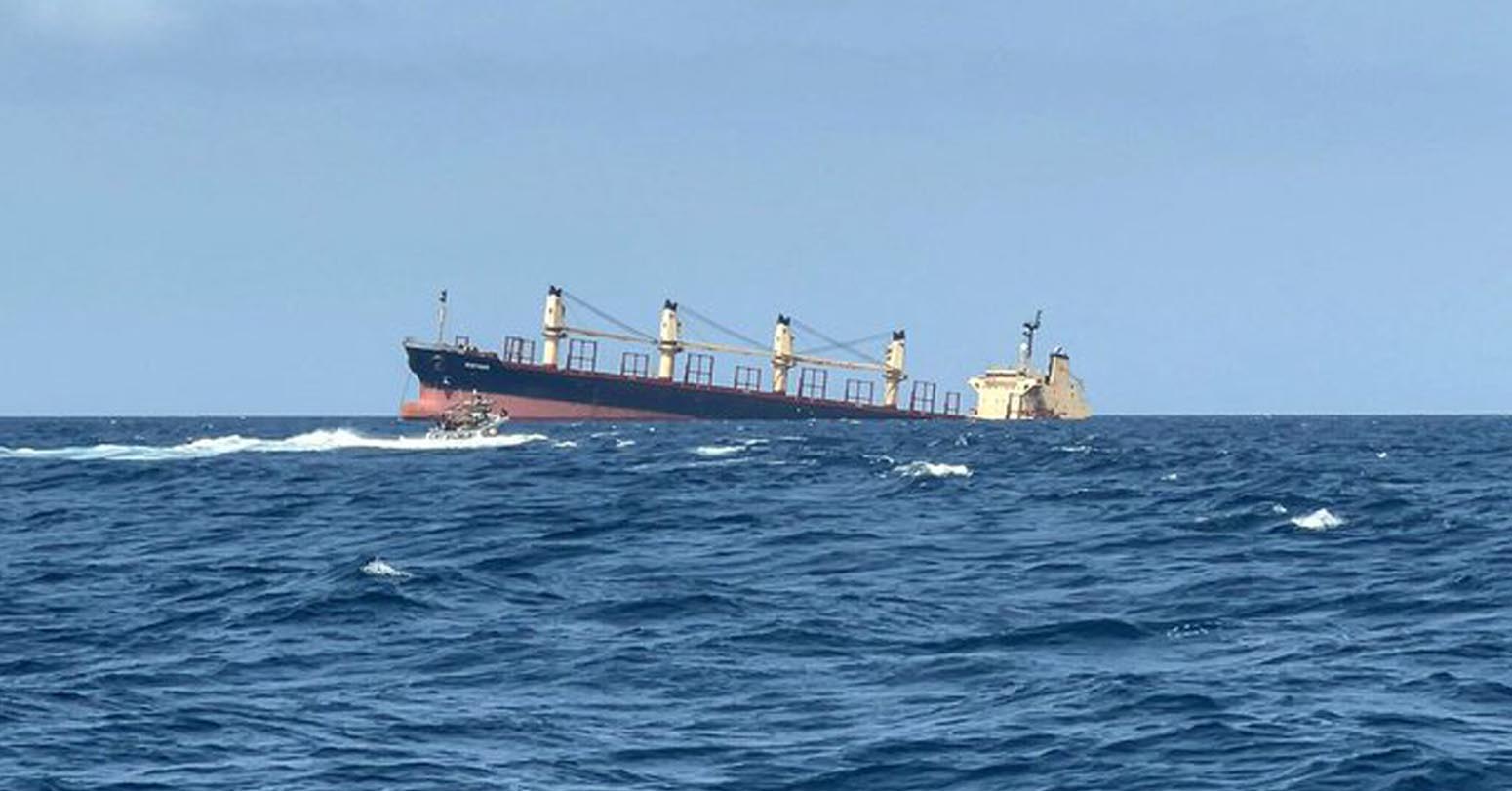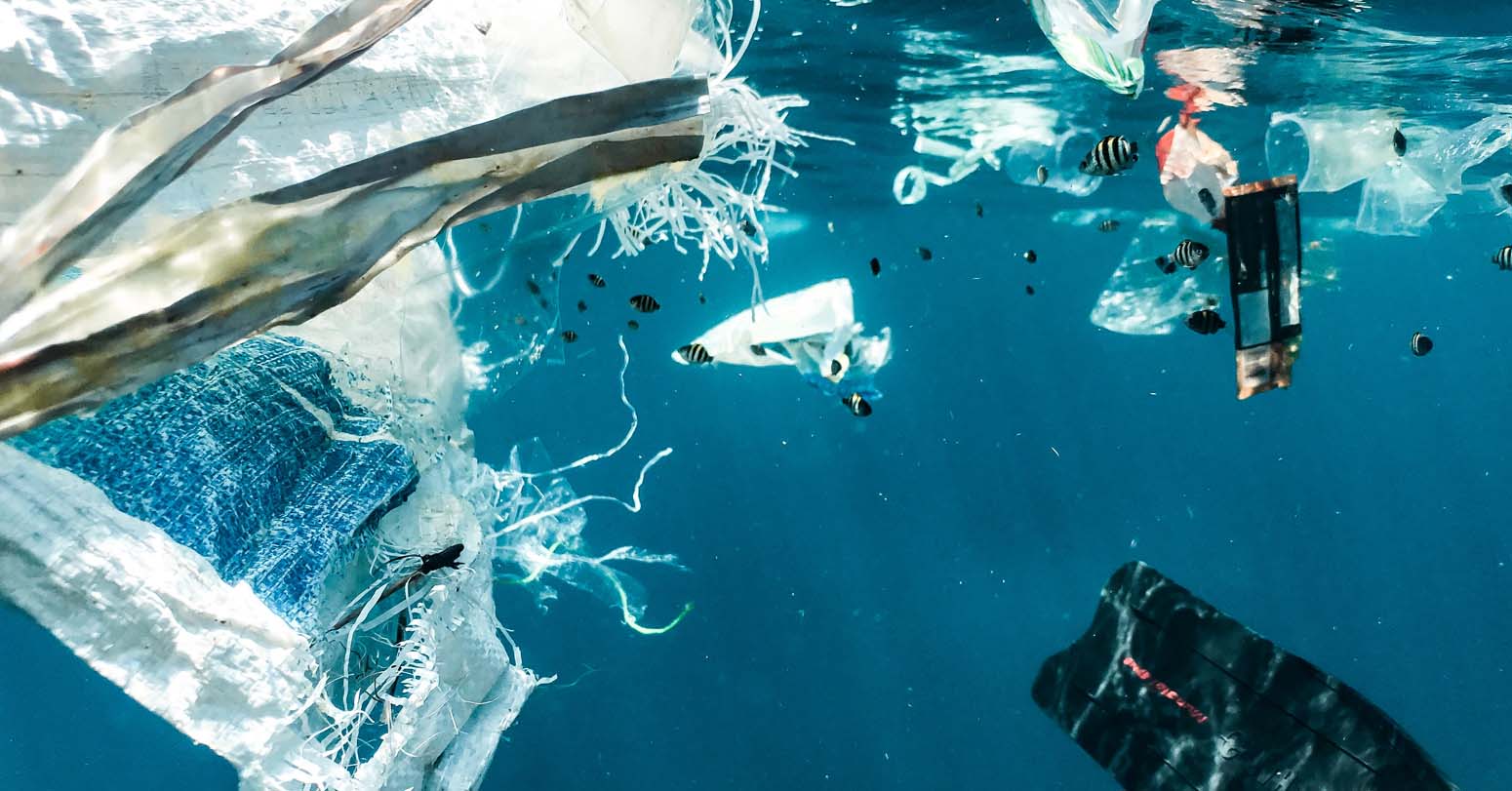In an escalating turn of events in war-ravaged Yemen, the country's government officially announced on Saturday the sinking of a ship targeted by Houthi forces in the Red Sea, exacerbating fears of an impending environmental catastrophe.
The MV Rubymar, a Belize-flagged, Britain-owned bulk carrier, sank in the Red Sea after being struck by Houthi anti-ship ballistic missiles near the port of Mocha on Feb. 18, prompting grave concerns about the release of dangerous materials into Yemeni territorial waters and the Red Sea.
Yemeni Prime Minister Ahmed Awad bin Mubarak on Saturday condemned the sinking of the ship, which carried approximately 21,000 metric tons of ammonium phosphate, sulfate fertilizer, and other hazardous substances, as an "unprecedented environmental disaster" for the region, underscoring the gravity of the situation for both Yemen and its people.
Thousands of fishermen in Hodeidah, reliant on the Red Sea for their livelihoods, now find themselves without work as a result of the recent ship sinking. With families and children to support, their future is uncertain.
Local experts warn of the devastating consequences of the fertilizers polluting the sea, which pose a grave threat to Yemen's coastlines and marine life in the Red Sea.
Abdul-Qadir Kharaz, former head of the Public Authority for Environmental Protection in Yemen, highlighted the peril posed by the ship and its cargo, saying that "the ship, built in 1997, is considered marine waste according to international standards."
He also elaborated on the dire consequences of the sinking ship's cargo, particularly the fertilizers onboard, explaining that "fertilizers would serve as a catalyst for the rampant growth of algae, forming a dense cover over the water's surface and coral reefs. This cover would obstruct sunlight, vital for the survival of coral reefs, leading to their eventual demise. "
Amidst increasing concerns about marine pollution and the spread of toxic substances, Yemen's government renewed its calls on Saturday for the international community and urged it to swiftly address the aftermath of the Rubymar incident to mitigate its environmental and humanitarian impact.
Meanwhile, the Yemeni government squarely blamed the Houthis for the incident on Saturday, emphasizing their responsibility for the catastrophic repercussions on the environment, economy, and humanitarian situation.
Speaking on behalf of the Houthi negotiating delegation, Abdul-Malik Al-Ajri, a member of the delegation, shifted responsibility to the United States, accusing it of militarizing the Red Sea and exacerbating regional tensions.
"The United States of America is the foremost party accountable for any environmental repercussions stemming from the British ship's sinking in the Red Sea," he wrote in a post on the social media platform X on Saturday. He also blamed the U.S. for obstructing resolutions at the United Nations Security Council aimed at ending the Israel-Hamas war.
The Houthi official also held the owner of Rubymar accountable for disregarding warnings and risking passage through volatile waters.
Maritime security expert Mohamed Salam Asbahi highlighted the significance of this event, noting that it marks the first deliberate sinking of a ship by Houthi forces.
"This is a dangerous escalation," Asbahi emphasized, "the sinking of Rubymar will undoubtedly complicate the situation." He further suggested that the incident could lead to an escalation in the military operations led by the United States and Britain against the Houthis, which were launched since January.
Asbahi warned that this escalation might culminate in a Western ground military intervention in the coastal Yemeni province of Hodeidah, situated along the Red Sea.
Ali Bin Hadi, a retired general of the Yemeni government forces, questions the effectiveness of the airstrikes carried out by the American-British air force, emphasizing that they are unlikely to provide a solution.
On February 18, the Houthis fired two missiles at Rubymar while it was passing through the Red Sea, partially damaging the ship. The Houthis claimed they believed the ship was carrying weapons bound for Israel.
The Houthis have stepped up their attacks on international shipping since mid-November last year, saying they were in solidarity with Palestinians in Gaza who faced intense Israeli attacks.
The U.S.-British forces since January have responded with dozens of airstrikes on Houthi targets, including mobile missile launchers and underwater drones, but have failed to deter the group from launching more attacks.
-XINHUA



















Comprehensive Data Protection Law Critically
Gender Differences In Mental Healthcare
Messi Wins Best FIFA Men’s
Erosion of Democracy
Fly Dubai Catches Fire in
“Complexities of the South Asian